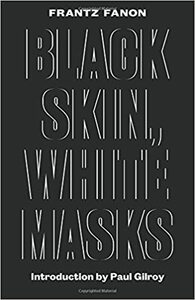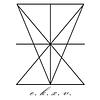Take a photo of a barcode or cover
challenging
emotional
hopeful
informative
inspiring
reflective
slow-paced
informative
reflective
medium-paced
challenging
informative
reflective
slow-paced
Intéressant comme matériel source. Plutôt aride, axé sur la psychanalyse.
challenging
emotional
informative
inspiring
reflective
tense
slow-paced
I'm still digesting Fanon's ideas in this book and I probably need to reread it to do this better- However, what stood out for me was the way in which black women are depicted only as sites for the black man's struggle to be recognised as fully human- and not as fully human themselves. The way in which Mayotte Capecia is infantilised and dissected is quite offputting.
informative
slow-paced
I found the comparisons between antiblackness and antisemitism at times interesting (such as that an antisemite is also inherently antiblack) and at times extremely dissappointing (such as that a Jew is a white man aside from his acts and behavior and that the extermination and hunting of Jews are "just minor episodes in the family history"). The constant comparisons of antisemitism/jews to antiblackness/black men got really repetitive and draining, also. I felt like Fanon spent more time drawing these comparisons than he did talking about antiblackness or black people. I also found the commentary on black women (or lack thereof) disappointing and at times misogynistic.
I did enjoy some of the poetry and thought some of the psychology was interesting.
I did enjoy some of the poetry and thought some of the psychology was interesting.
Fanon's arguments have become so foundational to postcolonial and race studies that everything in the text felt banal or, at worst, problematic due to their being presented alongside or through outdated sentiments and philosophical frameworks, namely psychoanalysis. Fanon's arguments, which are anti-essentialist (basically, he addresses racism as a European social construct imposed on black peoples' psyches), are in constant tension with and are often downright contradicted by the psychoanalytic frameworks he holds stock in (which are largely essentialist, as you can probably imagine). This book is also quite misogynistic and homophobic, a lot of which is by brought about by Fanon's applications of psychoanalytic frameworks. I also didn't care for the prose, which I found dense and muddled, which is worsened by the book's repetitiveness.
Was this worth the read? Yes, in the sense that it offers a snapshot not only of a very specific time in the discourse but also offers a glimpse at the roots of current discourse. I can only imagine that Fanon's arguments were groundbreaking at the time they were published. But I can't say I really learned anything new.
Was this worth the read? Yes, in the sense that it offers a snapshot not only of a very specific time in the discourse but also offers a glimpse at the roots of current discourse. I can only imagine that Fanon's arguments were groundbreaking at the time they were published. But I can't say I really learned anything new.
“Always at your service
Always deferential and smiling
Me never steal, me never lie,
Eternally grinning y a bon banania.”
Always deferential and smiling
Me never steal, me never lie,
Eternally grinning y a bon banania.”
challenging
dark
informative
inspiring
reflective
sad
medium-paced





